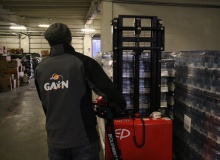

.jpg)
The regime of Lukashenko, a key ally of Russia, continues to jail those who dared to demand freedom and more democracy in the 2020 protests.
Cropped(1).jpg)
It is time, if you haven’t already, to add the ongoing suffering of Armenians to your prayer and action list.
.png)
“The ‘loverboy’ method is used to manipulate future victims”, says Anca Luhas. She works in Romania with eLiberare to raise awareness among young people and train frontline workers in detecting sex trafficking situations.
.png)
More than 23,000 visitors visited the ship operated by OM teams. Watch the video report.
.jpg)
In 2021, a philosopher and evangelical pastor said in a TV debate the change would show “an unprecedented ethical selfishness” fruit of a “sick society”.

The shared view of Russia as a lasting potential threat made CEE countries sympathise with Ukraine, especially since 2014. An article by Rafał Piekarski and Barbora Filipová.
.jpg)
In Europe, we have become used to the arrival of asylum seekers and refugees, most notably when some 2 million people fleeing the conflicts in Syria and Afghanistan. Yet the Ukraine migration crisis has been different.
.jpg)
The church had been searched by military personnel of the Russian-backed authorities. Relatives and church members have not received answers.
.jpg)
After becoming a Christian, he started smuggling Bibles into Eastern Europe. He died at the age of 94 in his home country Netherlands.
.jpg)
Patriarch Kirill defends Putin in what he calls a “fratricidal war”. Meanwhile, tens of thousands continue to leave Russia to avoid military mobilisation.
.jpg)
Eastern countries have the highest rates in Europe. Pioneer plans to prevent suicide are started in countries like Spain, where the incidence has been growing among young women.
Cropped(1).jpg)
The parliament prepares a law to abandon the UN Human Rights Committee. The latest decision condemned violations against a Pentecostal pastor.

We travelled nearly 7,000 km, through 15 nations with either a Muslim, Orthodox, Catholic or atheistic background. We encountered 9 currencies, 17 border crossings, and met 205 people.
Cropped(1).jpg)
The evangelical Ylli Doci is the chairman of the Interreligious Council of Albania. But why does the Albanian Evangelical Alliance commit time to this interreligious work?
.jpg)
The labour, the many donations and also the setbacks do not seem to have been in vain. A small Baptist union with less than 14,000 members is able to own this true gem.
.jpg)
The missionary vision of William Fetler led to starting the first Bible School in Riga. You can see this vision woven into the architecture of the fully renovated old building.
.jpg)
Both Ukrainian and Russian mothers have turned to magic and the occult and bought amulets, protection letters, special icons, to stave off evil forces and protect their sons fighting in the war.
.jpg)
Samuil Petrovski speaks about the vitality of churches, the recent presidential election, and what Serbia learnt about reconciliation after the 90s war.
.jpg)
Traditional values shared by many Christians, the threat of the nearby war in Ukraine, and a sense of protection of the country from outside influences are some of the reasons, say two Hungarian evangelical leaders.
.jpg)
The Kyiv Slavic Evangelical Seminary in Kyiv has confirmed his body was found in the city where Russian troops have been accused of war crimes against civilians.
.jpg)
Viktor Orbán faces a united opposition coalition in the parliamentary vote of 3 April. The war in Ukraine has strongly shaped the campaign. Serbia also holds elections.
.jpg)
After more than five hours of driving, we reach our destination in Rivne: a warehouse that has been rented by a network of Protestant churches. Three dozen young people are waiting for us to unload the aid.

How can we make sure that aid will be useful for Ukrainian refugees? Miqueas Forster of GAiN Spain answers this and other questions.

The muted voices of the church in Europe were heard more prominently in Lausanne Europe 20/21 than at any other European evangelical gathering, but we still have work to do.
.jpg)
“Almost every church in Moldova is doing something, there is pain not fear”, says a Christian worker in Moldova. A Finnish journalist: “We have 1,300 km of common border, battles with Russia are deep in our nation’s memory”.

Las opiniones vertidas por nuestros colaboradores se realizan a nivel personal, pudiendo coincidir o no con la postura de la dirección de Protestante Digital.